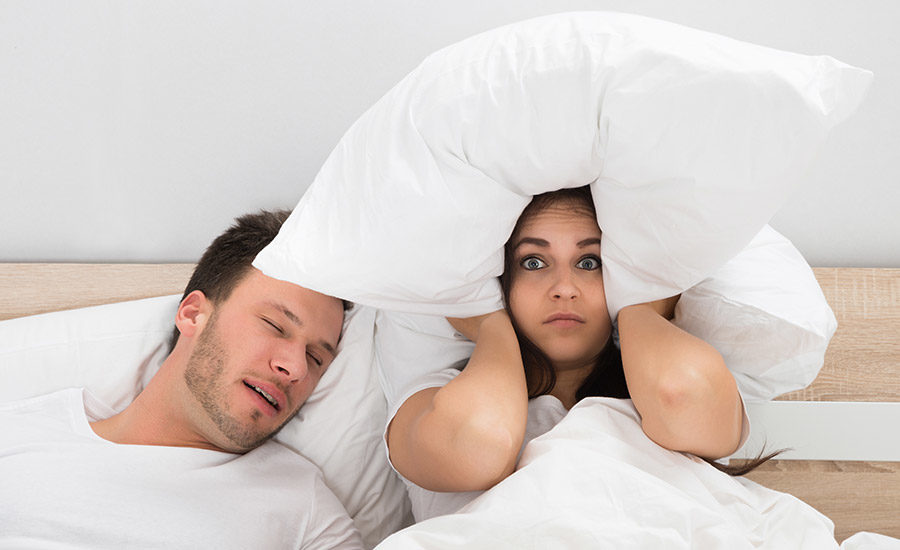The Chronic “Symphony” of Nighttime Snoring

Do you or your loved one suffer from the chronic symphony of nighttime snoring? Do you find yourself or that person not getting a solid good night’s sleep and are constantly fatigued. Do you find that you may be constantly waking up at night with shortness of breath?
If you can relate to any of these questions, you may be suffering from some form of Chronic Obstructive Sleep Apnea (COSA). Sleep apnea is a disorder where one faces interruptions in breathing or phases of very shallow breathing during nighttime sleep. This can happen frequently throughout the night from periods of a few seconds to a few minutes at each episode. The combination of these multiple episodes of disrupted sleep due to oxygen deprivation results in chronic fatigue in adults and difficulty focusing in school combined with hyperactivity in children.
Common risk factors for sleep apnea are allergies, enlarged tonsils and/or adenoids, and being overweight. When one is in his or her most relaxed position during sleep, the throat muscles and tongue are completely relaxed. Depending on the severity of the risk factor the tongue slides to the back of the throat where it begins to block or obstruct the airway, restricting the flow of air into your lungs. If left untreated, this may result in a number of chronic issues starting from fatigue, moodiness and depression to diabetes, liver disease, hypertension, heart disease and possible death.
Once diagnosed, COSA may be managed on many different levels. the most common being the CPAP device (Continuous Positive Airway Pressure). This device holds a person’s airway open during sleep through the use of pressurized air. While effective, many people find this device uncomfortable and quite confining.
On a different level, a qualified dentist through proper measurement may fabricate what is commonly called a Mandibular Advancement Splint. It is custom designed and made to that particular person bringing his or her lower jaw forward and slightly open resulting in the airway naturally opening and air flowing smoothly. These appliances have been highly effective in moderate sleep apnea cases. While the flow of oxygen is higher with CPAP devises, compliance by the affected person has shown to be better with a dental apnea appliance due to improved overall sleep and quality of life.
Surgery is also a possible option, but is typically left as an option of last resort. If you feel that you or a loved one’s quality of life and health is possibly affected by some form of sleep apnea please seek the assistance of your trusted physician and dentist.
Article written by:
Dr. Tamer Dabbous, DMD
The Dental & Oral Center | Muscat, Oman
www.dentaloralcenter.com

